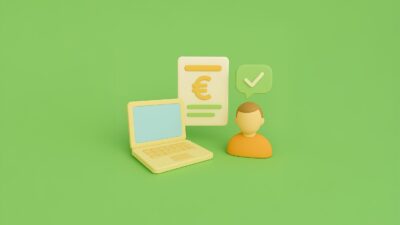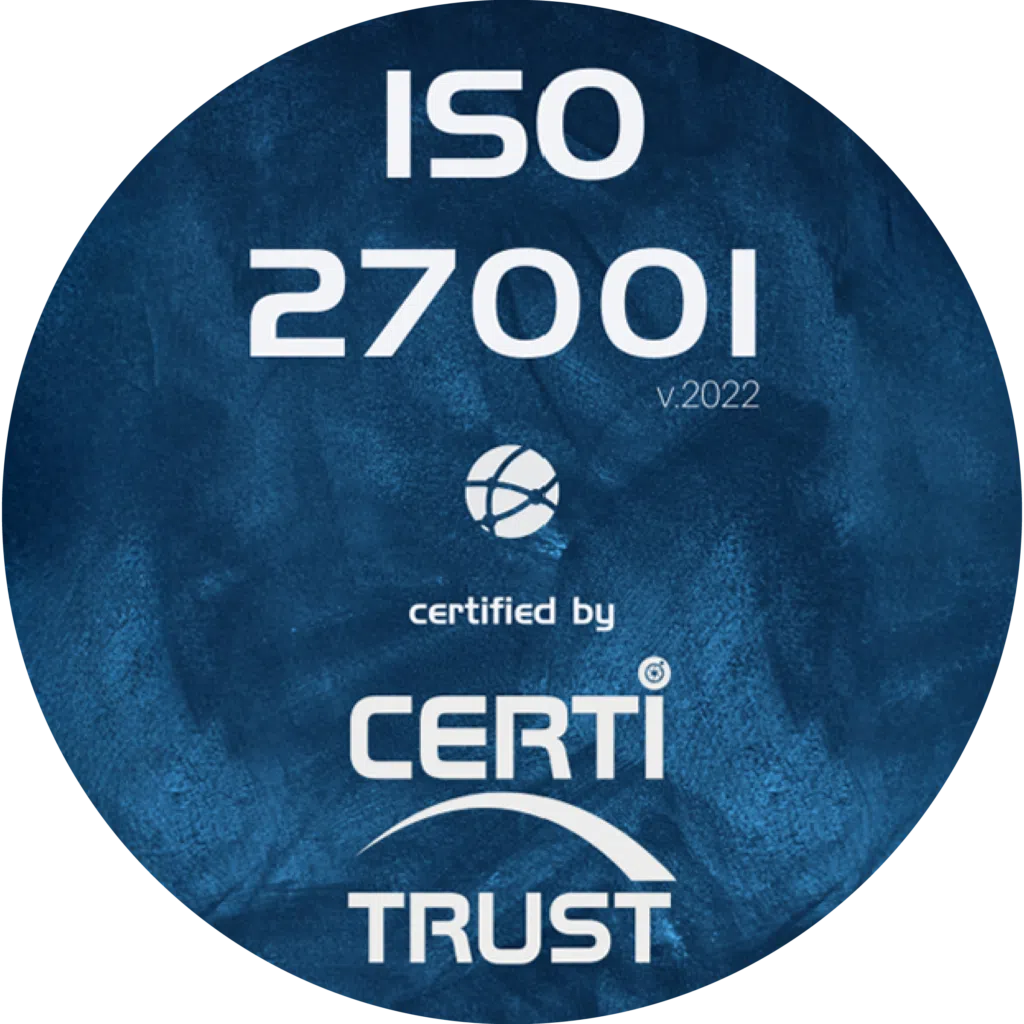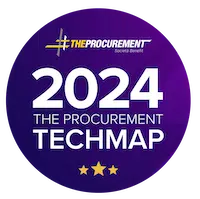Purchases and acquisitions of all kinds are at the heart of a company’s activity. Suppliers play a key role in this ecosystem of value exchange. Their full cooperation is vital to the company’s development. In addition, the health crisis has shaken up the way companies operate. It has also introduced revolutionary new management methods and tools. The popularisation of electronic invoicing is one of these laudable advances.
Although advantageous, this reform has not yet met with universal approval. Some suppliers are still reluctant. How do you convince your partners to play the game? What methods should be used to get them on board? Why is it necessary to optimise supplier invoices? We’ll be talking about this in more detail in this article.
Electronic invoicing at a glance
Gone are the days of issuing paper invoices, replaced by “electronic” invoices, which, as the name suggests, are invoices issued electronically. It is designed, issued and stored in electronic format. No printing is involved in this process, whatever the size of the company. It’s a win-win situation for both parties involved in the purchasing process, for example. The management of supplier invoices through electronic invoicing becomes more efficient.
Since 1 January 2020, companies working with the public sector have been obliged to send electronic invoices. The aim is to have 100% of invoices issued and stored in electronic format within two years. By 1 July 2024, every business will have to accept invoices created, issued and archived electronically by suppliers. The aim of this invoicing obligation, established by the 2020 Finance Act, is to make electronic invoicing the norm in France. Invoice data will have to be sent to the tax authorities. This is known as e-reporting.
Advantages of electronic invoicing for suppliers
While electronic invoicing is undeniably beneficial for SMEs, it is no less advantageous for suppliers. Indeed, suppliers also have very good reasons for opting for standardised invoices. These include
Payment terms
The biggest problem in the customer-supplier relationship is the time taken to pay invoices. There are several reasons for this delay:
- Overly long processing times;
- Cumbersome administrative paperwork;
- Administrative delays at the post office;
- Red tape at the company.
Electronic invoicing, on the other hand, reduces the time taken. By automating all these stages, payment times are reduced and data transmission is facilitated. The result is faster data processing and faster invoice dispatch. All the administrative paperwork will be eliminated from the invoicing process. This will also improve the customer-supplier relationship.
One of the other causes of delays in receiving invoices is data entry errors. In fact, errors on invoices are very common in the course of business: miscalculations of VAT leading to false VAT returns, or errors in contact details or registration. These careless errors considerably extend the payment deadline. Invoices must then be re-examined and errors corrected.
With electronic invoicing, these errors are not noted.Automation takes into account the efficiency of the process and the reliability of the data. This saves precious time, allowing you to concentrate on other high added-value tasks.
Traceability
Another advantage, and not the least when it comes to implementing electronic invoicing, is traceability. Suppliers know exactly what stage their invoice has reached. This reassures employees and gives them confidence. Automating the transmission and processing of invoices also means that documents can be archived in an ideal way, providing total transparency. Invoice management is simplified by receiving invoices using a single tool.
Improved customer-supplier relations
As mentioned above, dematerialised invoicing greatly improves customer-supplier relations. In fact, suppliers are very important for optimising a company’s finances. That’s why SMRs and purchasing software exist. So, to protect this relationship of trust between a customer and his supplier, disputes must be avoided at all costs.
Opting for electronic invoices to reduce payment times would be highly beneficial for good customer-supplier cooperation and would mean the end of paper invoices. No more multiple calls from suppliers to find out how their invoices are being processed. The dematerialisation of invoices is highly advantageous for both the customer and the supplier, as well as for the cooperative relationship between them, whether they are small or medium-sized businesses. It strengthens the relationship of trust between customer and supplier.


Why should your suppliers opt for electronic invoicing?
Knowing the benefits of an operation is one thing, but convincing others to adopt it is quite another. The first thing to do is to keep the cost of this technology as low as possible. Access to the platform must be totally free for suppliers, or it must be sufficiently relevant to convince them to use it in the long term. After all, they won’t object to a method that not only provides a solution to their problems, but also costs them absolutely nothing. Lifting the price barrier will surely convince your suppliers to adopt your method. You will then be able to dematerialise your invoices with complete peace of mind. Next, you need to demonstrate the benefits of adopting electronic invoicing in practice. Use this automation to show them in real terms how much time it will save them. Once you have demonstrated the effectiveness of electronic invoicing, they will have no choice but to opt for this solution.
In short, electronic invoicing is a real boon for businesses and suppliers alike, and is boosting competitiveness. With lower processing costs, electronic invoicing can cut costs significantly. But that’s not all: electronic invoicing not only makes it easier to receive invoices, it also saves valuable time, making companies more productive. Electronic invoicing is also an excellent way of securing company invoices and ensuring total transparency from end to end. These types of invoices represent a real opportunity to improve relations between customer and supplier.
The many advantages of electronic invoicing for businesses
The arrival of electronic invoices has been a real boon for SMEs. They offer many advantages. A purchasing management tool that offers electronic invoicing therefore has a real impact on the accounting department.
Speed
Electronic invoices are much faster to issue. In fact, there are far fewer administrative protocols to go through. By automating these procedures, invoice payment is faster than ever. Automated processing facilitates the company’s various processes.
Profitability
Electronic invoices are less expensive for businesses. This is because electronic invoicing saves companies paper, storage space and electricity. As a result, they considerably reduce company expenditure.
Security
These invoices are designed automatically, so they reduce the risk of input errors or any other mistakes. They are more efficient, more transparent and easier to control. Secure invoicing is essential to the smooth running of a business.
Durability
Like all electronic documents, electronic invoices are more durable. There is no risk of them deteriorating or being lost in transit.
Reduced risk of fraud
The arrival of electronic invoices is not only beneficial in terms of the speed with which invoices can be processed. They also helpprevent fraud and scams. Because they are more transparent, they discourage all kinds of schemes. They can therefore be a security and control tool for the company.
Increased productivity
As well as being more economical, using electronic invoices has a number of strategic advantages. In fact, they considerably reduce the amount of work required of company staff. Human resources are therefore better managed. Employees can be deployed for more important tasks. This increases the company’s productivity.
Process automation
The primary objective of dematerialising invoices is to achieve an automated system. This electronic invoicing system is therefore a further step towards digitisation. If used properly, its potential will enable the company to grow faster.
Reducing carbon emissions
The use of electronic invoicing also has a significant impact on the environment. Eliminating paper and printing reduces carbon emissions. Greenhouse gases produced during transport will also be eliminated.
All these factors demonstrate the value of this new invoicing method for all businesses. It avoids certain risks associated with poor management of supplier invoices. By opting for this type of invoice, you can lighten the load for yourself and your employees. Finally, by using this method of invoicing, everyone will benefit and it will no longer be necessary to use Excel to manage supplier invoices.
Want to learn more about our Weproc procurement management software?
Contact us or request your 15-minute demo below!








